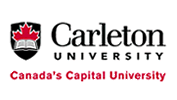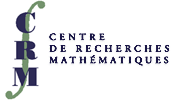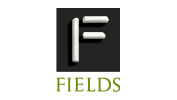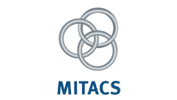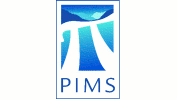 |
|
||||
Org: Benoit Dionne (Ottawa) et John Poland (Carleton)
[PDF]
- SANTO D'AGOSTINO, Brock University
Making a Smooth Transition from High-School Math to University Math [PDF] -
The typical level of mathematical preparedness of high-school graduates has decreased in the past decade, which makes it more difficult for them to succeed in first-year university. Reasons for this are discussed.
A program for helping current students make a successful transition from high-school mathematics to university programs that require mathematics is currently being implemented by the Mathematics Department at Brock University. The current status of the implementation, and our results so far, are presented.
- BERNARD R. HODGSON, Université Laval, Département de mathématiques et de statistique, Québec, G1K 7P4
Difficultés dans le passage vers le postsecondaire en mathématiques: les écueils de l'apprentissage de la rigueur au cégep et à l'université [PDF] -
Le passage vers le postsecondaire en mathématiques au Québec se fait en deux étapes distinctes, étant donné la présence du cégep comme ordre d'enseignement intermédiaire, entre l'école secondaire et l'université. Le but de cet exposé est de présenter brièvement certaines mesures mises en place afin de favoriser ces transitions-aussi bien au cégep qu'à l'université-, et ce tant en termes de structures d'accueil ou de soutien pour les étudiants que de contenus de cours visant à faciliter l'apprentissage de la rigueur et une saine utilisation du formalisme mathématique.
Je me pencherai de façon particulière sur le programme de baccalauréat en mathématiques offert par le Département de mathématiques et de statistique de l'Université Laval, notamment en ce qui concerne les cours de première année faisant le pont avec l'enseignement collégial.
- LEO JONKER, Queen's University, Kingston, Ontario, K7L 3N6
Engaging First Year Engineers in the Learning of Calculus [PDF] -
I will discuss curriculum adjustments and changes in course format implemented at Queen's to deal with the unevenness in student background and intellectual maturity, and to allow greater synergy with the physics course taken concurrently by the students. The curricular adjustments include a web-based self-study short course to bring all students up to the level of Ontario graduates. They also include starting the year with parametrized curves, doing integration in week 5, and teaching the sequences and series unit entirely as a unit on power series. The format includes interactive notes, concept questions and the use of clickers.
- MIROSLAV LOVRIC, Dept. of Math. and Stats., McMaster University, 1280 Main St. W, Hamilton, Ontario, L8S 4K1
Mathematics in Transition: Life Sciences Course at McMaster University [PDF] -
I will discuss rationale for and implementation of a new course `Calculus for Life Sciences' that I created in an attempt to address (among other objectives) certain issues that emerge in transition from secondary to tertiary mathematics. Course design has been, in part, based on my previous research in transition, and on insights that I gained from analyzing high school mathematics background surveys that I have been administering to incoming students for over five years. Among the largest challenges that students in transition face are poor algebraic skills, inadequate mathematical reasoning and learning strategies, as well as robustness of their preconceived notions about what a calculus course should be about.
So... what topics from calculus have been kept, and what is out? Do we still do proofs, are there any theorems left in the course? Why are students now studying discrete-time dynamical systems and stability? Relevant applications, presented in appropriate context, replaced related-rates and other artificial problems that populate calculus textbooks. We study allometric models (blood circulation time vs. body mass, scaling of bones), population and growth models, radioactive decay and dissolution of drugs, growth of cancer, to mention a few.
It is too early to provide any kind of answer to the ultimate question-does it work? However, I will share my initial experiences and reactions, as well as my students' reactions and critiques that I will collect during the semester.
- DAVID POOLE, Trent University, Peterborough, ON
Prospects for a Transition Course to University Mathematics [PDF] -
The transition to university mathematics is not a smooth one for a large number of students. University mathematics builds on high school mathematics, yet many students forget important concepts and techniques; more often, they simply do not know which concepts are the most important. In addition, university students are exposed to advanced mathematical thinking that relies on a more extensive use of formal definitions and proofs and that is critical for success in university. There is a need to bridge this gap with something other than remedial courses at the post-secondary level.
In this presentation, I will try to begin a discussion around the possibility of a foundation/transition course in mathematics at the first-year university level. I will suggest some ways in which such a course might be designed, appropriate pedagogy and assessment, and how it would fit into the existing curriculum. The goal is to create a course that would be of value to all students intending to take university mathematics.
It is hoped that this CMS presentation will form the basis for an ongoing dialogue that can be continued at the 2009 Canadian Mathematics Education Forum, where transition to university will be the focus of one of the working groups.
- MARGARET SINCLAIR, York University, 4700 Keele St., 3150 TEL Bldg
Transition to college: Focus on curriculum and pedagogy [PDF] -
Student success rates in first year mathematics courses in Ontario Colleges of Applied Arts & Technology are often unacceptably low. This is cause for concern because students who have difficulty in these initial mathematics courses are unlikely to graduate from their chosen program. To research the issues and facilitate deliberations over ways to increase student success at college, the York/Seneca Institute for Mathematics, Science and Technology Education (YSIMSTE) developed the College Mathematics Project (CMP). Following two pilot projects in 2004-05 and 2005-06, CMP grew in 2007 to include 6 colleges and 10 school boards in the Greater Toronto Area and in 2008 to include 11 colleges across Ontario. The goals of CMP are:
- to analyse the mathematics achievement of first-semester college students, particularly in relation to their secondary school mathematics backgrounds,
- and to deliberate with members of both college and school communities about ways to increase student success in college mathematics.
This presentation will provide an overview of the results of the CMP research, and will then focus on the discussions and recommendations emerging from the CMP 2008 forum around issues of curriculum and pedagogy. Specifically, it will consider a number of identified disconnects between secondary and college curriculum and pedagogy both in terms of practice and perception, and present some of the recommendations for addressing these disconnects to provide a better future for college students.
- to analyse the mathematics achievement of first-semester college students, particularly in relation to their secondary school mathematics backgrounds,

